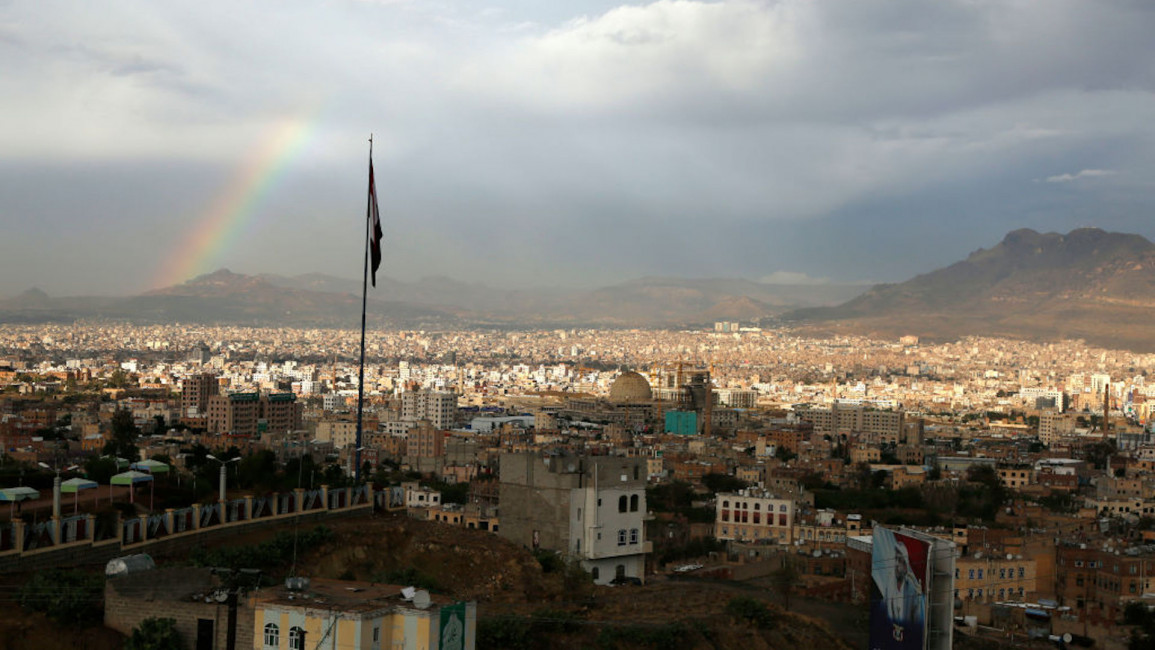UN envoy expects Yemen cease-fire agreement very soon
The envoy, Martin Griffiths, told the UN Security Council on Thursday that talks with Yemen's internationally recognised government, which is backed by a Saudi-led coalition, and the Iran-backed Shiite rebels known as Houthis "are making very good progress."
"I believe we are moving towards a consensus over the proposals, particularly on the principle of a nation-wide ceasefire," the envoy said.
"And we are redoubling our efforts to bridge the outstanding differences between the parties, before we convene them at a meeting where agreements will be tabled, confirmed, I hope, and published," Griffiths added.
The arrival of the coronavirus pandemic in Yemen, which reported its first case earlier this month, threatens deeper and more widespread suffering in the Arab world’s poorest country, convulsed by civil war since 2014, when the Houthis took control of the country’s north, including the capital, Sanaa. The Saudi-led military coalition intervened against the Houthis the following year, conducting relentless airstrikes and a blockade of Yemen.
The conflict has killed over 100,000 people and created the world’s worst humanitarian crisis, leaving millions suffering from food and medical care shortages and pushing the country to the brink of famine.
|
"There cannot be a more timely moment for the two parties to commit to silencing the guns and ending the conflict through a peaceful, political solution," he said.
Last Friday, Griffiths gave the warring parties revised proposals for a nationwide cease-fire, resumption of peace talks, and measures to spur the economy and alleviate suffering of the Yemeni people.
The Saudi-led coalition launched a unilateral cease-fire on April 9 in response to Secretary-General Antonio Guterres' appeal for a halt to hostilities in all global conflicts to tackle COVID-19, the illness caused by the virus. But the Houthis dismissed the offer as a ploy and clashes have continued since, casting doubt over a future peace agreement.
Read more: Yemen in Focus: Escalating violence undermines ceasefire efforts
The recent heavy fighting has been described by observers as the worst violence in over two years.
Both sides have blamed each other for violations across the key central provinces of Marib and Bayda, as well as the mountainous northern province of Jawf.
The Yemeni army on Wednesday accused the Houthis of breaching the truce 183 times over 48 hours with ballistic missile attacks. The rebel military spokesman, Yehia Sarea, said the Saudi-led coalition had launched 230 airstrikes since the start of its cease-fire.
Griffiths acknowledged the violations but said that in his discussions with the rebel leader, Abdel-Malik al-Houthi "always communicated his desire to end this war."
"Lamentably, military activities continue on a number of fronts despite many calls from Yemenis and the international community for it to stop," Griffiths said. "The sooner we can stop the fighting, the better."
 |
| Click to enlarge |
Griffiths told the Security Council that he has been in constant negotiations on the details and wording of his proposed agreements. "We expect them to agree on and formally adopt these agreements in the immediate future," he said.
But Mohamed Abdel Salam, a spokesman for the Houthis, said Thursday the current U.N. proposal neglects a key rebel demand – to lift Saudi Arabia’s air-and-sea blockade, which aid officials partly blame for fueling the country’s humanitarian crisis.
"Dialogue under fire and siege is only a strong-arm tactic that works in the interest of the military option," Salam said.
With Yemen’s health infrastructure degraded and people’s immune systems more vulnerable after five years of war, U.N. humanitarian chief Mark Lowcock said, "epidemiologists warn that covid-19 in Yemen could spread faster, more widely and with deadlier consequences than in many other countries."
Lowcock told the Security Council that in the first quarter of 2020, civilian casualties rose every month in Yemen, with more than 500 people killed or injured and one-third of the victims children. He warned that 31 of the UN’s 41 major programs "will start closing down in the next few weeks if we can't secure additional funds" – including many "that may offer the Yemenis' best chance to avoid covid-19."
This could mean that up to 1 million displaced will not receive critical supplies and nutrition programs will be cut, "affecting 260,000 severely malnourished children and 2 million more children with moderate malnutrition," he said.
The World Health Organization estimates that 80 percent of health services provided through the UN "could stop at the end of April," Lowcock said, adding that UN agencies estimate they need more than $900 million to continue their work through July.
He thanked Saudi Arabia for its pledge last week of $500 million for UN-led work and $25 million for covid-19 activities but said pledges don’t solve the problem – actual funds would.
Follow us on Facebook, Twitter and Instagram to stay connected



